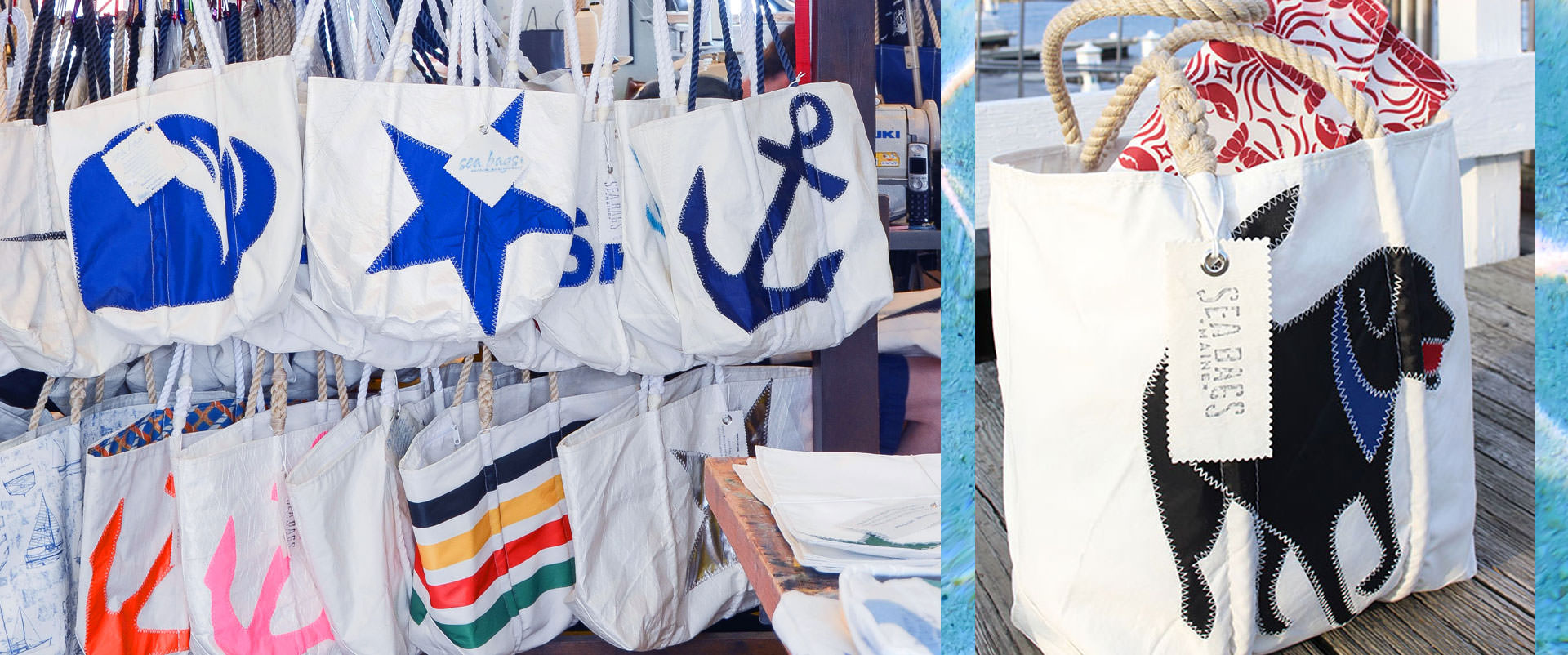
Oh Naturel!
SOS: Save Our Sails
Sailing is the ultimate picturesque summer activity. Not to mention that sails are wondrous works of art & engineering. Splashes of colors combined with dynamic designs create Insta-worthy images as they drift by. But they’re more than just a pretty face. Sails have the power to propel a boat across the entire globe— no energy other than wind required.
Sails, much like your favorite shoes, log a lot of miles. And after extensive exposure to UV rays, corrosive salt water & whipping winds, they eventually wear out. As a safety precaution, used sails have no resale value & are discarded. Well, at least that used to be the case. That is until Maine native Hannah Kubiak decided to give sails a second wind. And that’s how Portland, Maine-based nautical recycled Sea Bags was born.
Maine first, New England second, USA ultimately.
In 2006, Beth Shissler, who’d been snagging Sea Bags for her gift shop on Isle au Haut, a small island in mid-coast Maine, decided to join forces with Kubiak to grow the business. But rather than looking at the bottom line, the two agreed getting larger would only work if they stayed true to a few core tenets. “When we started talking about what the business would look like, we had three cornerstones: Having products made in Maine, being good stewards to our community & being as green in product & practice as we could be,”
she says. All three values still guide their business today.
Shissler & Kubiak source their sails from a deep network of sailors across the country who can trade in old sails to be made into new bags. The sails are then cut by hand, laundered & delivered to the shop where they’re sewn & a recycled rope handle—made by a New England company—is attached. “When we source our materials, we think Maine first, New England second, USA ultimately,”
says Shissler. “And that’s where it stops.”
It’s also important to note that very little cloth ends up on the literal cutting room floor. In an effort to reduce their own scrap, Sea Bags makes hang tags, coasters & change purses from odd, small snips that aren’t big enough for bags.
Every bag someone purchases employs 10 people.
“For us, sustainability is all about jobs,”
says Shissler, who notes with pride that Sea Bags now has more than 50 employees. “We’ve calculated that 10 people touch every bag from start to finish, which means every bag someone purchases employs 10 people.”
Today, Sea Bags sells over 100,000 units a year & has saved more than 500 tons of sail cloth from ending up in landfills.
But feeling, looking & doing good doesn’t mean sacrificing good design. If you haven’t already noticed, Sea Bags are super cute. (Another reason they’re so successful). Numbers & letters from the original sails are worked into designs in the Vintage Insignia collection. While other totes are embellished with metallic leather, canvas or printed with lobsters or octopi. It also doesn’t hurt that plenty of celebs have been snapped toting Sea Bags, but that’s not what gets Shissler excited. “My favorite moments are sitting in my office here in Portland & seeing someone out the window walk by carrying a bag,”
she says. “They’re functional bags that real people in our community love & that’s what makes me the most happy.”